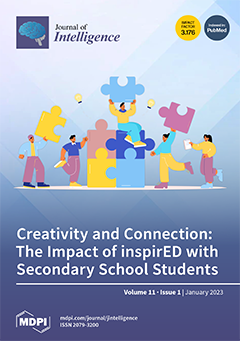Background: Video-induced negative affect may have an impact on cognition. In this study, acute exercise and music listening are used to explore their impact on individual cognition with video-induced negative affect. Method: All the participants were randomly divided into six groups. Group 1
[...] Read more.
Background: Video-induced negative affect may have an impact on cognition. In this study, acute exercise and music listening are used to explore their impact on individual cognition with video-induced negative affect. Method: All the participants were randomly divided into six groups. Group 1 (
n = 19, average age = 20.15) was not given any form of acute exercise or music listening; Group 2 (
n = 20, average age = 21.33) was given music listening; Group 3 (
n = 20, average age = 20.89) was given acute exercise; Group 4 (
n = 20, average age = 21.03) only watched a video without being given any acute exercise or music listening; Group 5 (
n = 19, average age = 20.68) was given music listening after watching a video; Group 6 (
n = 18, average age = 21.32) was given acute exercise after watching a video. Results: In the pre-test, we found that there was no significant difference in negative affect, positive affect, and cognitive performance among the groups (
p > .05). The post-test indicated that the negative affect of college students who watched the video (20.16 ± 8.34) was higher than that of college students who did not watch the video (11.12 ± 3.29). Acute exercise and music listening improved the cognitive performance of college students with video-induced negative affect. Acute exercise improved the cognitive performance of college students with non-video-induced negative affect, while music listening did not. Conclusion: The acute decline in the cognitive performance of college students caused by video-induced negative affect can be ameliorated by means of acute exercise and music listening.
Full article






